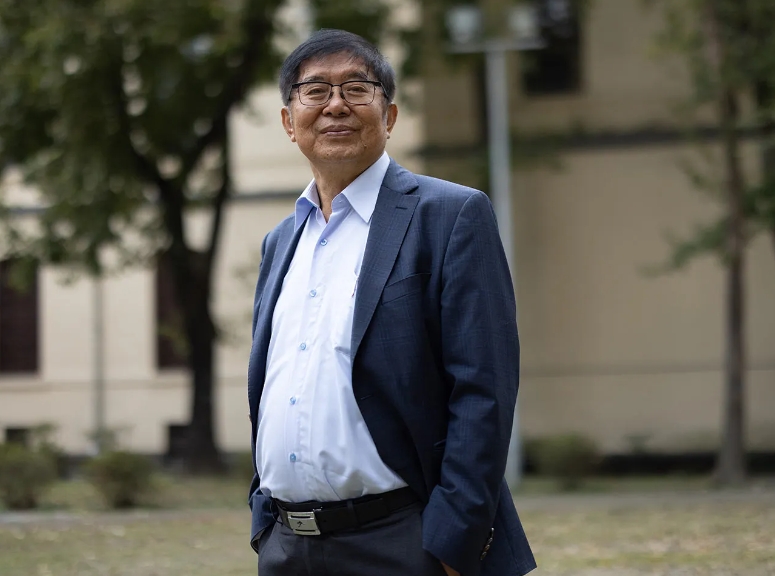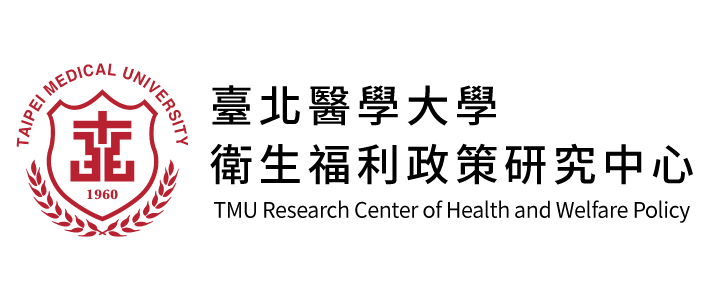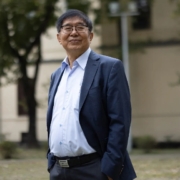[Column Article] Bo-Chang Lee’s Column | Will National Health Insurance Go Bankrupt? How to Save Overworked Hospitals? Nine Recommendations for Health Insurance Reform
Once hailed as the “Taiwan Miracle,” the National Health Insurance (NHI) system now faces numerous issues, including the loss of nursing staff and hospitals being forced to close beds. Bo-Chang Lee, who served as the Director of the National Health Insurance Administration (NHIA) for six years and eight months, has published a book, arguing that NHI reforms must pragmatically address human nature to achieve comprehensive changes.

Image source: Photography by Zhong Shi-Wei Author: Bo-Chang Lee, Silver World Published on: 2024-09-02
In 2016, I had the opportunity to enter the NHI system upon the recommendation of then-Tainan Mayor and current President Lai Ching-te. However, both of my sons, who are doctors, were opposed to the idea, reasoning that “all the doctors are criticizing NHI.”
Because of this, my brother (National Taiwan University’s Surgery Professor Li Bo-Huang) separately called my two sons to inform them, “Your father has the chance to work at the NHIA and contribute to the nation; this is a rare and meaningful opportunity, and you should actively support it!”
Reforming NHI with a Pragmatic Approach to Human Nature
Most young doctors find it difficult to appreciate the benefits of NHI. Before the implementation of NHI, patients who needed dialysis or major surgeries might have had to sell their houses, risking financial ruin. The fact that NHI now ensures basic health care for all citizens is a significant achievement.
Although various countries have different types of healthcare insurance systems, such as the universal healthcare system in the UK, the social insurance system in Germany, the market-driven system in the US, and the savings fund system in Singapore, Taiwan’s NHI system was established in 1995 through the perseverance of public health pioneers, with the support of President Lee Teng-hui and three successive Premiers—Yu Kuo-hwa, Hao Po-tsun, and Lien Chan. It has since become the guardian of Taiwan’s people’s health and contributed to political stability.
After nearly 30 years, Taiwan’s NHI system, nurtured by the dedicated efforts of our medical colleagues, has carved out its own path and stands out globally. At this critical juncture, we do not need grand slogans but must instead pragmatically address human nature to carry out NHI reforms that will allow the system to undergo transformation and ensure its sustainable development.
Most citizens do not truly “understand” how NHI operates. When they hear news about a crisis in NHI, they only care about whether premiums will increase or whether the system will go bankrupt. However, bankruptcy typically refers to the inability of an individual, company, or other entity to repay its debts. According to the current NHI regulations, there will be no situation where NHI goes bankrupt.
The annual total NHI budget is a fixed amount. If the total number of medical service points exceeds the budget, the value per point will fall below 1 NT dollar. If the budget does not increase in proportion to the services provided, this essentially exploits medical personnel, as the more they do, the less they might earn. Therefore, some hospital management experts have proposed demands such as “breaking the budget cap and guaranteeing a point value of 1 NT dollar per point.” If NHI premiums cannot cover total expenses, the law mandates an increase in premiums to generate additional income. However, for the ruling party, this presents a political risk.
High Outpatient Volume Squeezes Funding for Critical Care
Due to the serious skew in NHI expenditure, outpatient services account for 70.3% of total medical service points, while inpatient services account for only 29.7%. Additionally, the cost of medications has reached 32.58% of the total NHI budget, and the prevalence of defensive medicine has caused diagnostic and examination costs to continue rising. The result is that payments for surgeries and other invasive treatments have been suppressed.
The inability to make pragmatic adjustments has led to an unfair and harsh situation for medical teams, creating the so-called overworked hospitals, with nursing staff leaving and hospital beds being closed. How to ensure that life-saving inpatient treatments receive fair compensation will be a crucial focus in NHI reform.
If doctors can adhere to medical ethics and reduce unnecessary medical actions when prescribing medications or ordering tests and examinations during outpatient visits, it will naturally reduce the total number of NHI points and increase the value of each point.
Reducing the volume of outpatient services and unnecessary medical actions will alleviate the workload on healthcare personnel and improve their quality of life. However, this cannot be achieved by hospitals or doctors alone; the public must also take responsibility. During my tenure at the NHIA, I continuously promoted policies like “tiered medical care and copayments” in hopes that, with a small but noticeable increase in healthcare costs, people would gradually adjust their healthcare-seeking behavior.
Facing Human Nature Pragmatically for Tiered Medical Care
To implement tiered medical care, we must pragmatically address human nature. No one considers their own life unimportant. Whether suffering from a mild or severe condition, every patient wants to consult the best-reviewed doctor or be treated by a professor-level physician at a medical center. They are reluctant to visit primary care clinics, fearing that any delay might miss the critical window for treatment.
Taiwan’s medical institutions, on average, are on par with those in Europe and the US. Healthcare professionals in regional hospitals and primary care clinics have received comprehensive training at medical centers and possess excellent skills and abilities. The government is responsible for strengthening public awareness campaigns to gradually change people’s healthcare-seeking behavior.
I believe that every primary care doctor can play the role of a family doctor, complementing the doctors at medical centers. If all medical institutions do not intentionally pursue high outpatient volumes, reduce unnecessary tests and examinations, and avoid medical waste, the value per point will surely exceed 1 NT dollar, allowing all healthcare workers to receive fair compensation.
Using Copayments to Control Service Demand
To reform NHI, we need to pragmatically address the following key points:
- Urgent and Pragmatic Adjustment of NHI Spending Standards: Without reasonable adjustments to NHI spending, no amount of budget growth will ever be sufficient to compensate healthcare workers adequately.
- Immediate Adjustment of Points for Surgical and Invasive Procedures: Payment for nursing, intensive care units, emergency services, and other labor-intensive activities must be adjusted through the reallocation of healthcare resources to thoroughly eliminate the nightmare of overworked hospitals.
- Focus on Chronic Disease Management: President Lai Ching-te’s “Healthy Taiwan” vision requires joint efforts from the medical community to provide proper care for every chronic disease patient, reducing unhealthy years of life. With around 300 million outpatient visits annually, of which 91.4 million are chronic disease patients (30.4%), there is a misalignment in healthcare priorities. Too much manpower and funding are devoted to non-chronic disease areas, which need pragmatic review and reform.
- Effective Use of the Cloud-Based Healthcare Information System: Once the cloud-based NHI information system is successfully established, doctors at medical centers or clinics can review previous test reports and images from their computer screens. This system is the foundation for implementing tiered medical care in Taiwan. The “Health Bankbook” provides citizens with the best self-care information, and I hope everyone makes good use of it by regularly checking online to see if their medical expenses are being misused, thereby helping to preserve NHI resources.
- Implementing Tiered Medical Care and Separation of Medical and Pharmaceutical Services: By fully utilizing medical personnel, we can reduce unnecessary medical actions through a pragmatic implementation of “user copayments.”
- Adjusting Drug Prices Following Patent Expiration: Drug prices must be adjusted according to international standards after patents expire to curb the distorted practice of hospitals pursuing profits through price differences. This will allow medical services to receive reasonable returns and restore proper business practices. It will also enable the inclusion of effective new cancer drugs and surgical materials into NHI coverage to benefit critically ill patients. Over the past ten years, price adjustments have negatively impacted the prices of domestic generic drugs, leading to an increasing number of low-quality “candy” drugs and contributing to potential drug shortages.
- Improved Coordination Between Government Departments: The Ministry of Health and Welfare, the Ministry of Economic Affairs, and the Insurance Bureau of the Financial Supervisory Commission must enhance communication and coordination to achieve the goals of “commercial insurance cooperation with NHI” and the “second tier of NHI.” This will alleviate patients’ financial burdens by utilizing improved commercial insurance to cover cancer drugs or special materials not yet included in NHI coverage.
- Pragmatically Addressing Human Greed: Penalties for violations are crucial for managing NHI finances. The current practice of leniency toward false claims by medical institutions needs to be re-evaluated.
- Strong Leadership in Government Agencies: Healthcare professionals are trained to think independently, make judgments, and take responsibility for their patients’ pain. Civil servants often have practical considerations about promotions and may hesitate to express their own opinions, instead following their superiors’ instructions. Therefore, strong, capable, and responsible political leaders are needed to guide their colleagues, ensuring that the people of Taiwan enjoy health and happiness.
I am particularly fond of a couplet gifted to me by a colleague: “With the sky blue and the earth white, let us be free and open; water surrounds the mountains, let us adapt and be resilient.”
- I Pursue Joy in Life: Life must be joyful! We must confront all challenges with persistence and a sense of mission. Our pursuit should not be solely for money, as there are many beautiful experiences in life worth cherishing.
- Our Value is Not Determined by Others’ Opinions: Rather, our worth comes from the mission and responsibilities we uphold.
- Be Broad-minded and Generous: We should not be too focused on short-term gains or losses. Only by being broad-minded can we gain respect from others.
Finally, I believe that life’s richness lies not in monetary wealth but in the strength of the soul.



